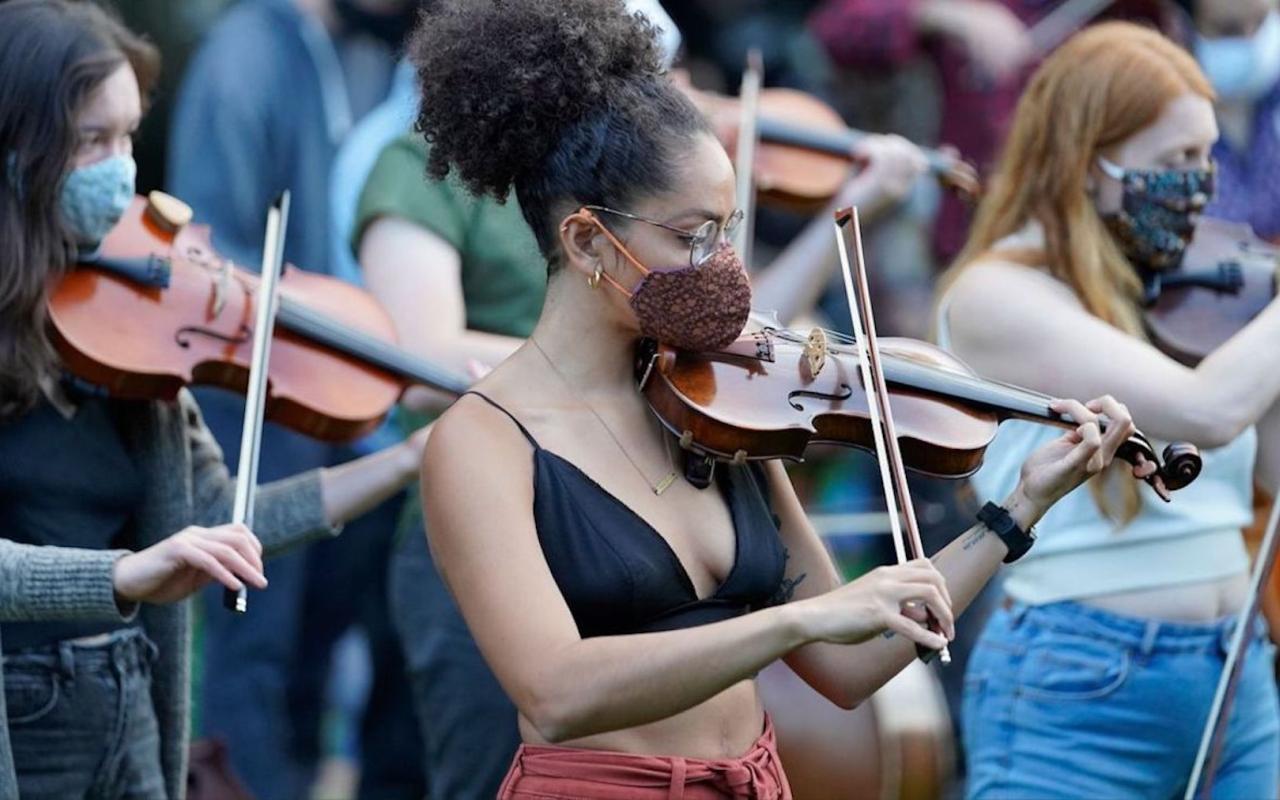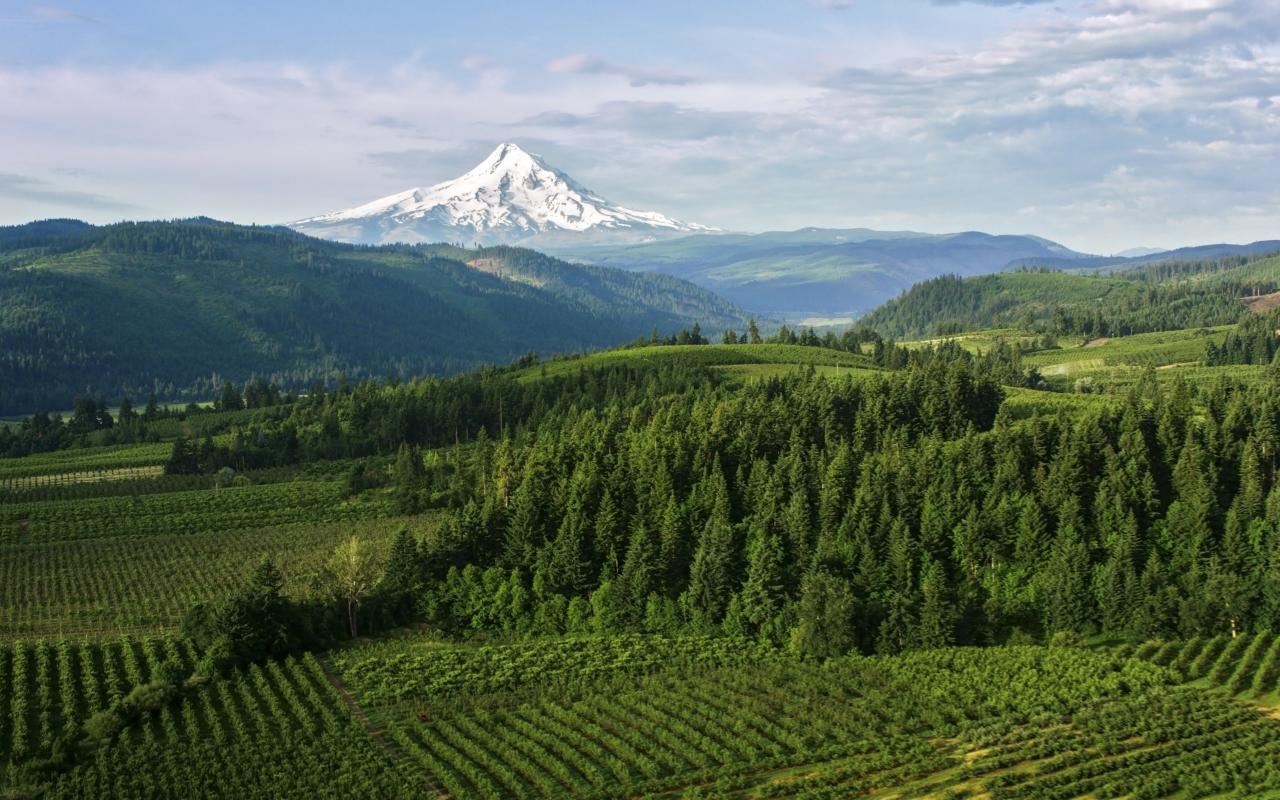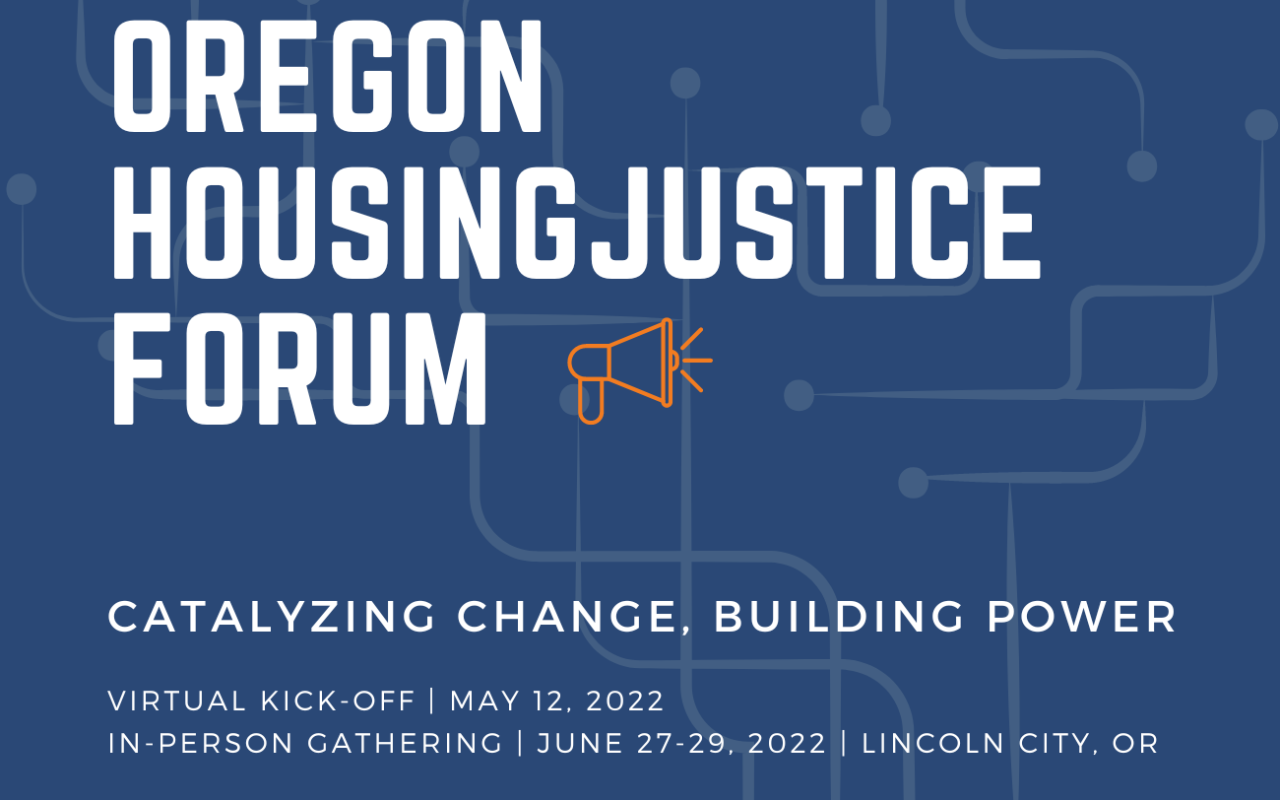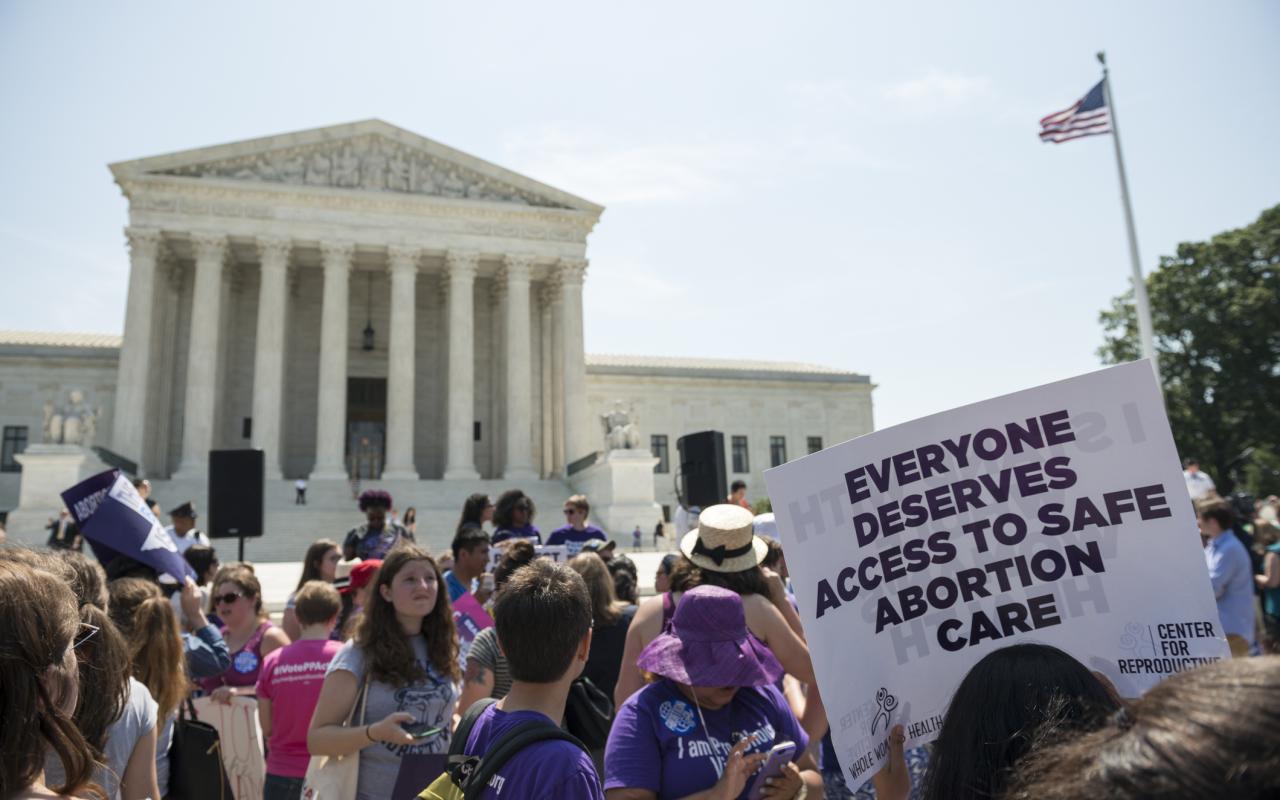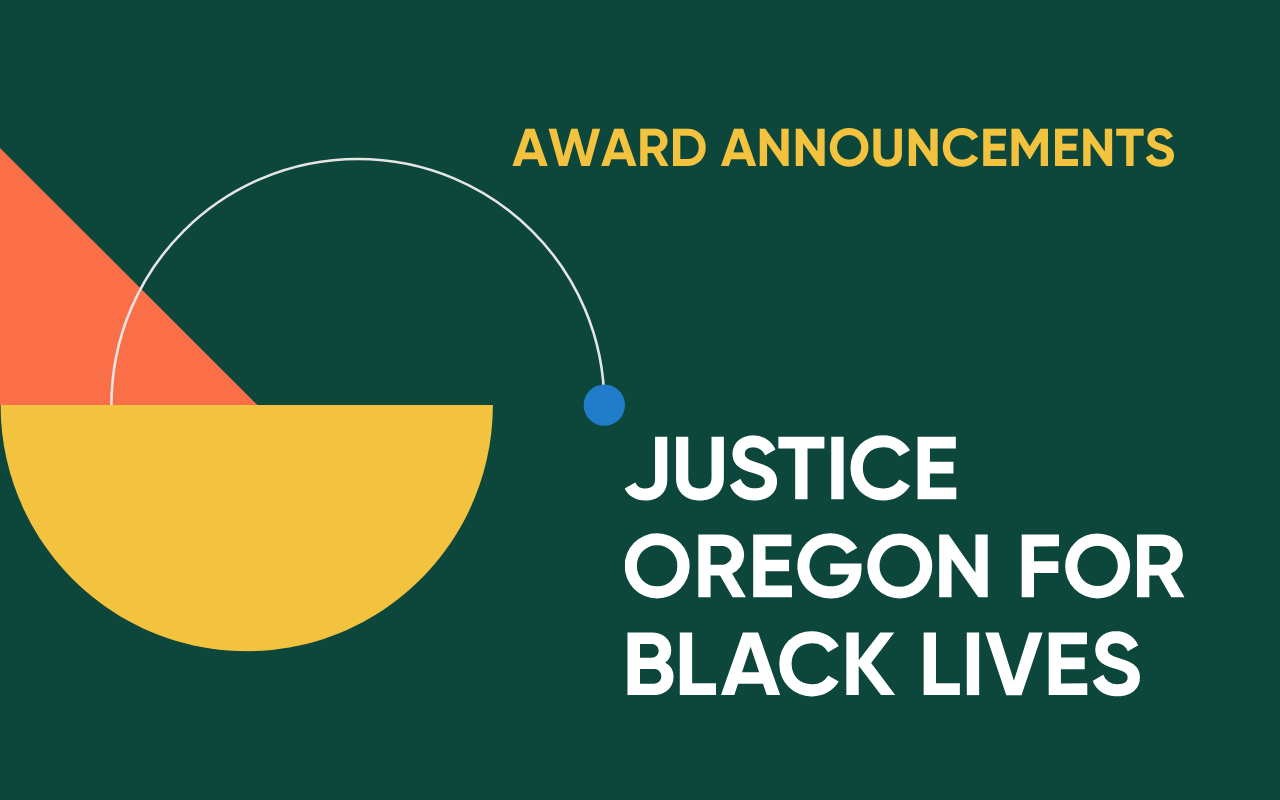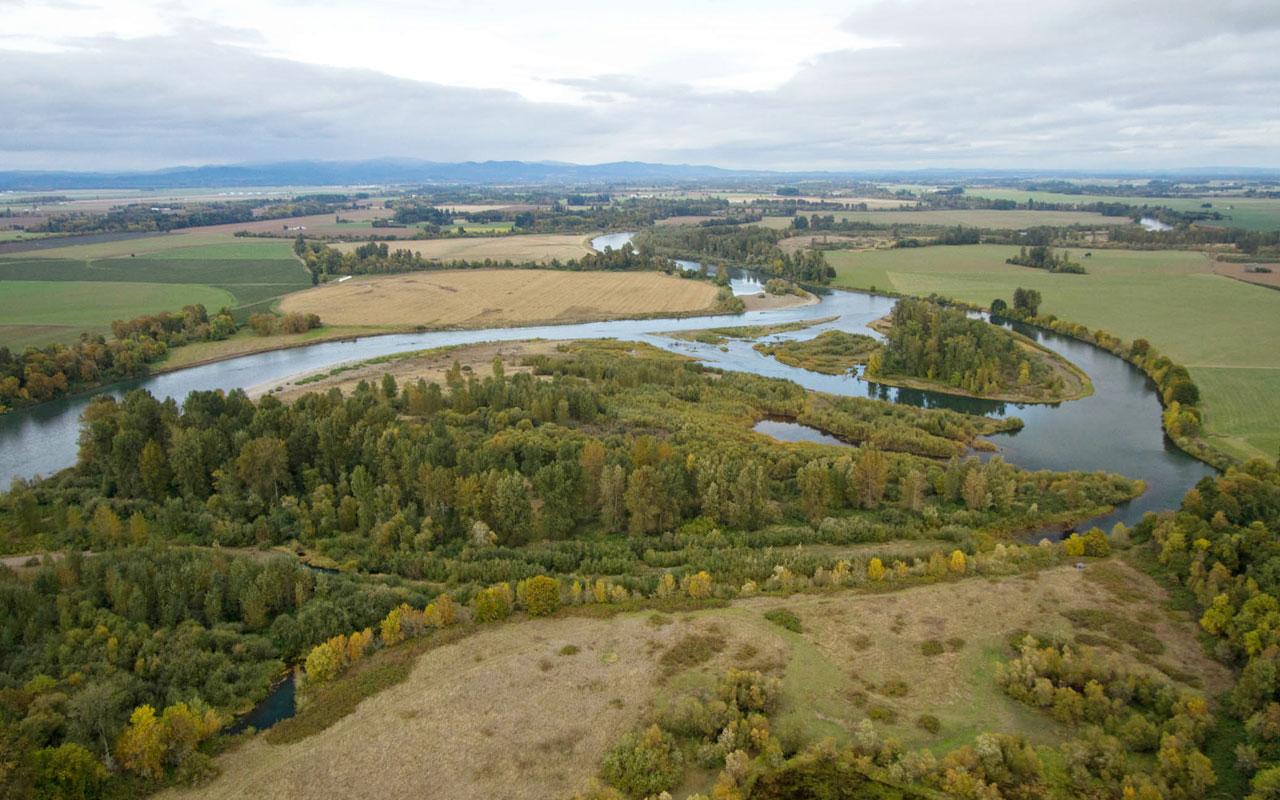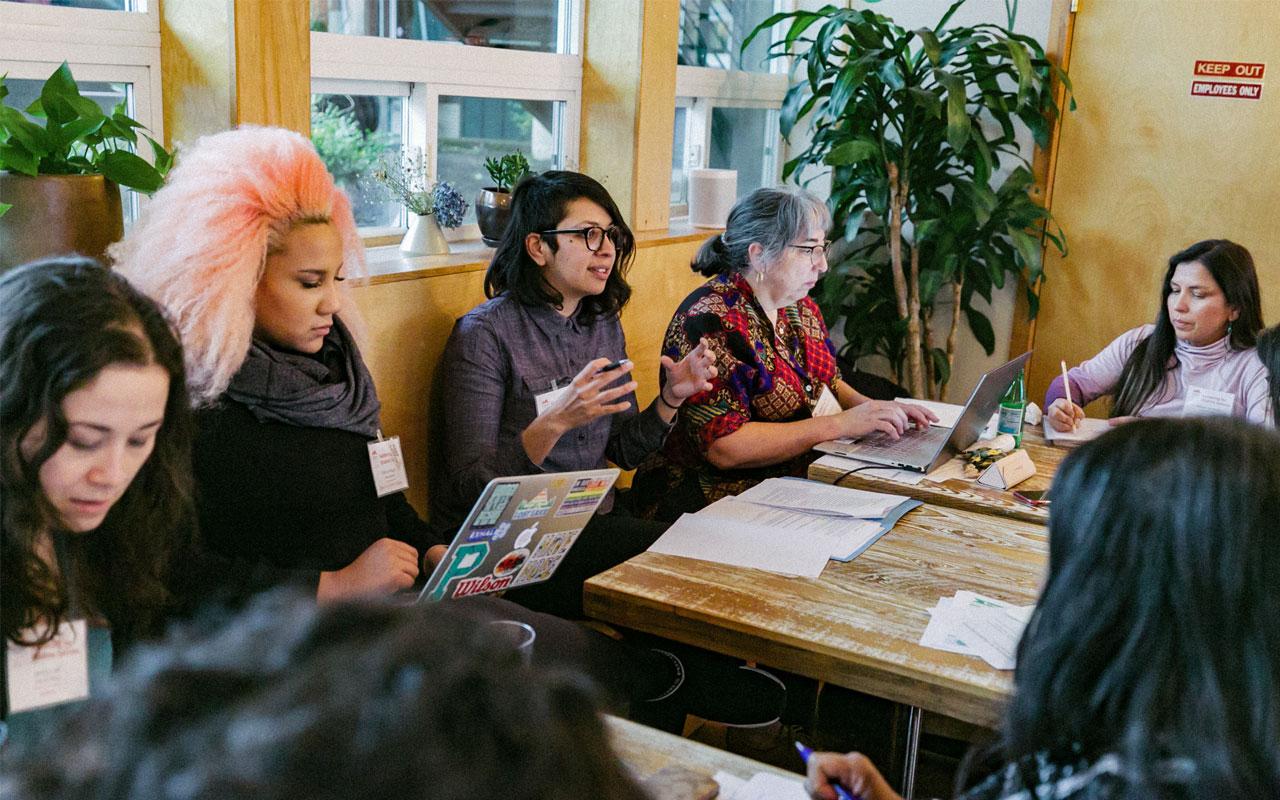What We've Learned from Listening to Communities of Color
Nearly two decades of working in nonprofits have acclimated me to restrictive, donor-directed funding. I can count the number of times on one hand that a donor has asked for input on strategy. So I was pleasantly surprised to learn that my first task as Meyer's director of grantmaking would be listening to community members to inform our new approach. I could not have asked for a better introduction to Oregon’s amazing leaders and organizations!
Over the summer and early fall of 2022, Meyer — in close partnership with community leaders — convened a series of community engagement sessions. Starting in June and continuing through October, Meyer hosted 16 group sessions and a half-dozen, one-on-one interviews across four communities (Latine/x/a/o, Native, Asian American, Native Hawaiian/Pacific Islander), as well as one thematic area (gender justice). The Justice Oregon for Black Lives initiative also held community listening sessions last year. Each group’s conversations took different forms, following the lead of the community and working to best fit their needs.
Meyer staff worked to be intentional in our approach. We read reports ahead of time and hired facilitators from the communities we were speaking with in an attempt to create a more neutral space. We offered collective and individual meetings. Mindful of how listening sessions require community members to give of their time and wisdom — an arrangement that can be extractive — Meyer offered every attendee an honorarium for their participation. And similarly conscious of the fact that honoraria are right and necessary, but not fully sufficient for showing our appreciation for their insights, we also told participants that we would share back with them what we heard from specific groups and collectively across all conversations.
Common Themes
I want to shine a light on the common themes that surfaced, the threads that ran through the different communities and gatherings we held. Though these themes may not be “new” and we saw each community interpret the themes uniquely, there are clear trends that resonated within the diverse BIPOC communities we spoke with.
Everything is interconnected. Everyone is connected.
The conversations we had with communities of color clearly underscored the truism of intersectionality: we are all connected and cannot address issues in isolation. Hearing tangible examples of this in the lives of community members further validated the intersectional focus of Meyer’s new strategic framework. It is a core pillar on which future grantmaking will be built. At the same time, we heard the complexity and nuance of this approach; we know we will need to stay in partnership to navigate this well.
Belonging means home and it also means healing.
We heard variations on this theme but the melody carried through: communities of color need spaces to authentically belong, in order to carry forward efforts to make Oregon a place where anyone can feel at home. Given the historic erasure and forced assimilation of BIPOC communities, there is a strong desire to retain cultural identity but this does not preclude unity in Oregon. The mindset of abundance reminds us that there is space for all.
Current investment in leaders and organizations is essential for future progress.
The pandemic and racial reckoning of the last two years have pushed organizations into new areas of service delivery with limited support to organizational infrastructure. On one hand, new needs and possibilities have emerged. On the other hand, there aren’t enough people to carry out the work. Moving forward on racial justice will require specific support to the organizations on the front lines of leading racial justice change for their communities.
Unique Learnings
In addition to the commonalities across groups, I also want to lift up some of the specific insights that surfaced during our time with community.
Data is helpful, except when it's harmful.
One of the key takeaways from the Native Hawaiian and Pacific Islander (NH/PI) engagements was actually foreshadowed in our own engagement planning process. When Meyer's program staff first mapped out our summer of engagement, we planned to meet with the Asian American and Pacific Islander communities, often abbreviated as AAPI.
But when we began introduction calls, we heard feedback that guided us in a different direction. Native Hawaiians and Pacific Islanders shared how the broad label of AAPI often skewed the data and invisibilized their experiences. As a first-generation Chinese American who has relative privilege in comparison to many others under the “AAPI” label, it was easy to see how harmful this lack of nuance could be. The mass aggregation of data told a very different story than what was being lived in reality. Even the NH/PI label encompasses incredibly varied experiences and needs.
As a starting point, Meyer could help rectify the invisibilizing history by engaging with NH/PI leaders in their own conversations separate from Asian American leaders. Disaggregating the conversation was one important component to build relationships with this community and better understand its strengths and needs.
The natural world is a part of — not apart from — Oregon's definition of community. It's time we think of it that way.
Our Native engagement team spent nearly eight hours over three sessions with two dozen leaders and representatives from Oregon's Native communities. In addition to echoing the themes of interconnectedness, belonging and building, they offered another essential insight — that our environment, our place is a part of our community. The water, the air, the wildlife, our wildlands and worked lands are as integral to our well-being as the schools we send our children to or the jobs we take or the businesses we support.
For us at Meyer, it validates why we chose to include the collective well-being of Oregon's lands and peoples in our new mission statement.
How We're Using the Insights We Gathered
After hearing from over 100 community members, Meyer staff mapped and synthesized what we learned. We saw convergence around the key themes named earlier and reported these findings to Meyer’s Trustees in October. We shared facilitators' notes and transcripts of the sessions to those who engaged in the process.
For those interested in a deeper exploration of those conversations, we invite you to review our synthesis brief to get a deeper, richer sense of the conversations we had and the focus areas communities lifted up.
Most importantly, we are integrating the priorities we heard into our new strategic framework, which will be fully shared in coming months. We are beyond grateful for the time, energy and passion from community members and we hope to be worthy stewards of what was shared.
In Community,
— Helen
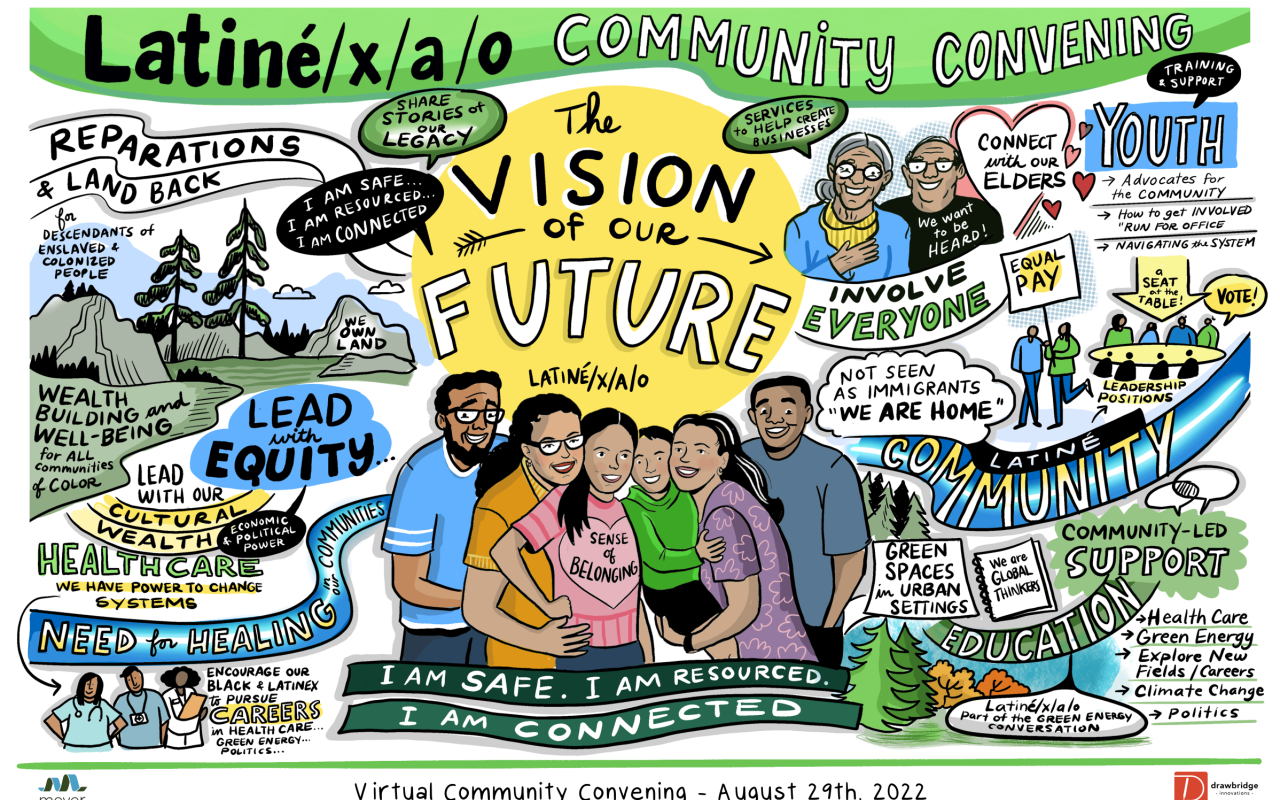
A graphic recording of a community engagement held with the Latine/x/a/o community, Summer 2022.

